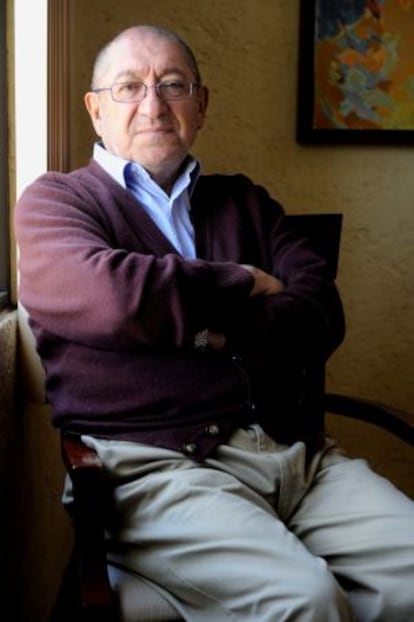“There is a genuine chance for a FARC peace pact”
Colombian historian Marco Palacios expresses optimism over end to violence

Coffee, emeralds, cocaine and violence -- especially violence -- seem to define Colombia's image. The Colombian historian, Marco Palacios, a professor at El Colegio de Mexico, began his career with a dissertation on coffee in Colombia from 1850 to 1970. But for the last 20 years he has been trying to figure out the solution to the Rubik's Cube which is the relationship between legitimacy and violence, including the difficulty of finding a national consensus and building a democratic state while armed conflict remains a fixture in his country. His latest book, Violencia pública en Colombia 1958-2010 (or, Public violence in Colombia 1958-2010), has just been released as peace talks continue in Havana between the government of President Juan Manuel Santos and the Revolutionary Armed Forces of Colombia (FARC).
Question. What are the origins of this long armed conflict?
Answer. The roots are basic inequality in the social fabric that involves large landowners and a society that is just beginning to move to urban areas; and in the political sectors [...] that involves a patronage system from Hispanic colonial origin, which was wonderfully adapted inside the liberal institutions.
Q. For decades Colombia has experienced a kind of civil war suspended in time. Is the cause, like in other American republics, over the struggle for legitimacy, over who had the right to govern after independence?
A. Therein lies a question that we have not managed to answer successfully: who do you obey when there is no longer a king? This is what was asked in 1808 throughout the Hispanic world and was preceded by the notion: "I will obey but I won't follow orders," which was common in the colonial era.
Q. Has violence stunted economic growth in Colombia?
A. Revenue from drug trafficking has distorted the economy as well as society in general. But despite the violence. growth has kept its pace. The only difference is that it has gone in another direction, and there is a redistribution of national revenue, broadening the ranks of who is considered rich in Colombia.
Q. Do you think that the peace negotiations with the FARC will be successful?
A. There are certain elements that would lead one to think that they will end well. One very important factor is that there is no guiding force inside or outside Colombia that is threatening to derail the process. If the FARC really want to demobilize, then they will join the political process. How they will manage in that new scenario is another story. But for now there appears to be a genuine opportunity for a peace pact.
Tu suscripción se está usando en otro dispositivo
¿Quieres añadir otro usuario a tu suscripción?
Si continúas leyendo en este dispositivo, no se podrá leer en el otro.
FlechaTu suscripción se está usando en otro dispositivo y solo puedes acceder a EL PAÍS desde un dispositivo a la vez.
Si quieres compartir tu cuenta, cambia tu suscripción a la modalidad Premium, así podrás añadir otro usuario. Cada uno accederá con su propia cuenta de email, lo que os permitirá personalizar vuestra experiencia en EL PAÍS.
¿Tienes una suscripción de empresa? Accede aquí para contratar más cuentas.
En el caso de no saber quién está usando tu cuenta, te recomendamos cambiar tu contraseña aquí.
Si decides continuar compartiendo tu cuenta, este mensaje se mostrará en tu dispositivo y en el de la otra persona que está usando tu cuenta de forma indefinida, afectando a tu experiencia de lectura. Puedes consultar aquí los términos y condiciones de la suscripción digital.








































